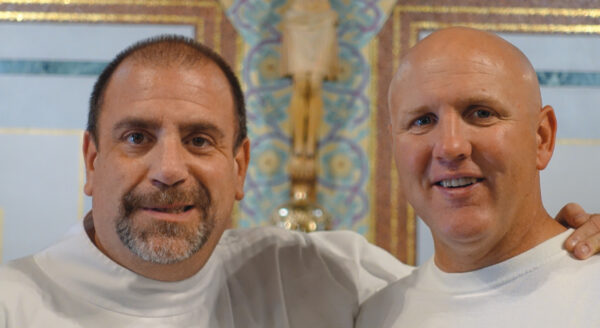
WINDSOR TERRACE — The number of people willing to step forward to donate their organs to save a life has seen a precipitous decline in the age of COVID-19, according to medical experts.
United Network for Organ Sharing (UNOS), a non-profit organization that manages the country’s organ transplant system for the U.S. government, reported that donations from living donors had decreased 90 percent since March. The availability of organs from deceased donors has plummeted by nearly 50 percent during that same time. Transplant patients generally have greater longevity when they receive organs from living donors.
While the number of donors has dropped, the need for organs is showing no signs of decreasing.
According to the U.S. Health Resources & Services Administration, more than 109,000 patients were on the national transplant waiting list as of September. An estimated 17 people die each day waiting for a transplant, according to information on HRSA’s website.
That news makes Father Jim Cunningham feel sad. Father Cunningham, the associate pastor of St. Francis de Sales parish, Belle Harbor, is one of the lucky ones.
He received a kidney transplant nearly five years ago. His advice to potential donors? “If you can help someone in need, do it,” he told The Tablet.
Father Cunningham’s journey began when he went to the doctor to seek help for his high blood pressure. The doctor recommended that he see a nephrologist. The nephrologist told him he would need to go on dialysis because he had kidney disease. The news was shocking to him because it was so sudden.“Boom! It was one, two, three,” he recalled.
“I was on dialysis for a period of time,” he said.
Father Cunningham is one of four children. His siblings stepped up to the plate to try to help him. One of his brothers turned out to be a good match, and a transplant was planned. But when the brother underwent testing in preparation for a transplant, a cancerous tumor was discovered in his bladder. He survived cancer. The family came to feel that it was a lucky break. The tumor would likely have not been found without the testing.
Parishioners at his church offered to be tested to see if they were a match for Father Cunningham. “I didn’t ask them,” he said, still sounding moved by their generosity.
That’s when a friend of his, firefighter Patrick Nash, offered his kidney without Father Cunningham requesting it. “I would never ask someone. It’s a hard ask,” he said.
“He turned out to be a perfect match,” Father Cunningham said.
Father Cunningham and firefighter Nash were both close friends of the late firefighter Timothy Stackpole, one of 343 members of the FDNY killed on 9/11. Father Cunningham said both he and Firefighter Nash firmly believe that firefighter Stackpole had a hand in the transplant from heaven.
The transplant took place on March 9, 2016. “He gave me a gift I can never thank him enough for,” Father Cunningham said of firefighter Nash.
Father Cunningham did give his friend a special gift — in a way. At a party held to celebrate Father Cunningham’s successful transplant, Firefighter Nash met his wife. Father Cunningham officiated at the wedding.
He is one of three people in the Diocese of Brooklyn who talked to The Tablet about their kidney transplant recipients’ experiences.
Father Henry Torres, parochial vicar for St. Sebastian Church, Woodside, had been suffering from FSGS since 11 years old.
“It’s an auto-immune disease. You are born with it,” he said.
Father Torres has undergone two transplants. The first took place in 2006. It was initially successful, but the kidney donated by his mother Margarita started to fail within five years. Father Torres had to go on dialysis.
“When you have one functioning kidney, and you’re on dialysis, you’re dependent on a machine to have some semblance of a quality of life. You have to plan out everything,” he said.
Father Torres got a second chance when he received a deceased person’s kidney. That transplant took place in 2012. Eight years later, the transplanted kidney is still working.
“I feel great,” Father Torres said.
He encourages people to consider donating organs. “I think everyone who can be a donor should be a donor. If you donate, nothing in your life changes. You can still live a normal life,” he said.
Jerry Kassar, chairman of the New York State Conservative Party, said the kidney he received from a friend has dramatically improved his life quality.
“In my case, it made all the difference,” he said.
Kassar, a parishioner of St. Ephrem Church, Dyker Heights, suffered from kidney disease for several years and finally went on dialysis.
“For many people, dialysis is four days a week — three hours a day. It can take a great deal out of your quality of life,” he said.
His kidney was donated by a friend of his who requested anonymity. The donor didn’t even tell his family. The operation took place at Mount Sinai Medical Center on Sept. 27, 2017.
A transplant “allows you to live, essentially, a normal life,” Kassar said. “I’m so blessed to have this,” he added.
Like Father Cunningham and Father Torres, Kassar is eager to encourage people to donate their organs if they can. “There is really a great need during times like these,” Kassar said.
